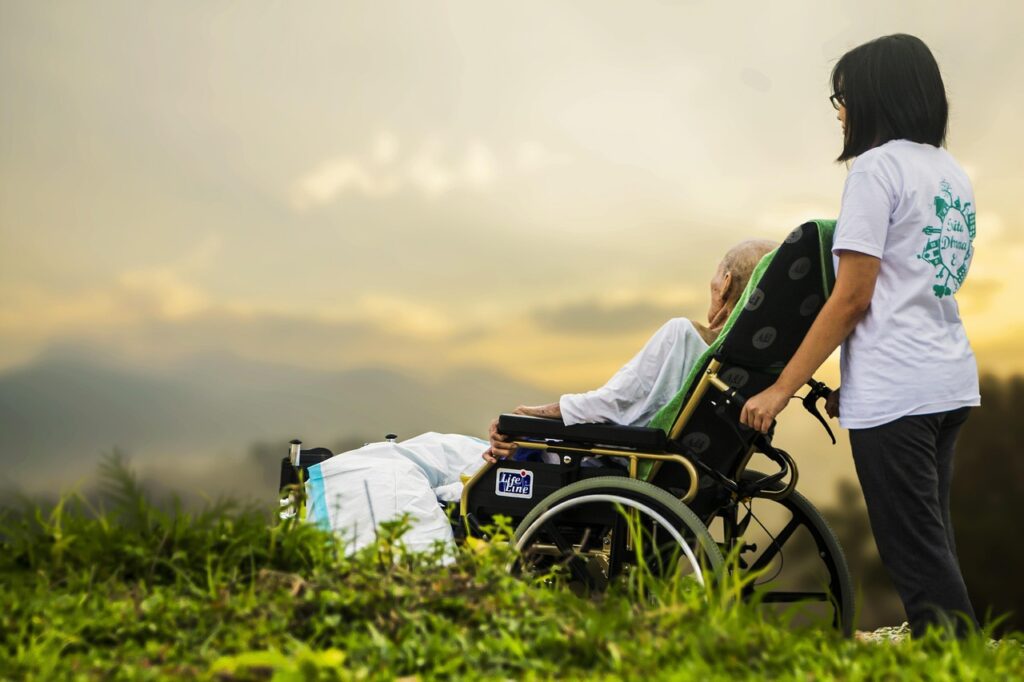🤝 Senior Care Companion for Aging Adults: Because No One Should Grow Old Alone 💬❤️
Aging is a journey — one filled with wisdom, memories, and life lessons. But for many seniors, especially those living alone, that journey can also come with loneliness, isolation, and emotional stress.
That’s why Senior Care Companions are becoming an essential part of elder care — offering not just help, but heartfelt human connection. Whether your loved one lives alone, is dealing with memory loss, or simply craves conversation, a companion can bring joy, structure, and emotional well-being to their daily life. 🧓🌼
👥 Who Is a Senior Care Companion?
A senior care companion is a non-medical caregiver who spends quality time with aging adults — offering companionship, conversation, and assistance with daily activities. Unlike nurses, companions focus on emotional support and social engagement rather than clinical tasks.
🧑🤝🧑 Companions are ideal for seniors who:
- Live alone or feel socially isolated
- Recently lost a spouse or partner
- Have early-stage dementia or cognitive decline
- Are mobile but need light daily support
- Miss regular interaction and engagement
💡 Why Companionship Matters in Senior Care
Loneliness among seniors is a growing concern. Studies show that lack of social interaction can lead to:
- Depression and anxiety 😞
- Memory decline and confusion 🧠
- Sleep issues and appetite loss 😴🍽️
- Increased risk of illness and hospitalization 🏥
- Overall decline in quality of life ⚖️
A dedicated companion can prevent these issues by simply being present, attentive, and kind. 🫶
🧑⚕️ What Does a Senior Care Companion Do?
While not medically trained, companions are often the most emotionally impactful people in a senior’s life. They can:
- 💬 Engage in conversations and memory-sharing
- 📖 Read books, newspapers, or religious texts
- 🎲 Play board games or traditional games like Pallanguzhi
- 🕊️ Accompany to temples, parks, or family visits
- 🧹 Help with light housekeeping or errands
- 🍲 Assist with meals and hydration reminders
- 📱 Help with phone calls or video chats with family
- 🎶 Listen to music, sing bhajans, or do activities the senior enjoys
Every action, however small, contributes to mental wellness, confidence, and happiness.
✅ Benefits of Having a Senior Care Companion
Companionship is as vital as medical care — especially for seniors who still live at home. Here’s why:
- ❤️ Reduces loneliness and promotes emotional wellness
- 🧠 Stimulates mental activity through conversation and games
- 🧘 Improves overall mood and reduces stress
- 🕰️ Helps maintain a routine and sense of purpose
- 👨👩👧👦 Gives peace of mind to families — especially if living far away
📍 Who Should Consider a Senior Care Companion?
This service is perfect for:
✔️ Seniors living alone in their home or apartment
✔️ Aging adults with mild physical limitations
✔️ Recently widowed elders who feel isolated
✔️ NRI families who want regular emotional support for their parents
✔️ Older adults who don’t need full-time medical care but do need someone to talk to
🏠 Where to Find Senior Care Companions
You can find professional and compassionate companions through:
- 🏥 Home care agencies
- 📲 Elder care service platforms
- 🏡 Independent caregivers with verified references
- 👥 NGOs or senior citizen groups offering social care services
💡 Tip: Look for companions who speak the local language, understand cultural and religious sensitivities, and have a warm, engaging personality.
💬 Real Story
“My father lost interest in life after my mother passed. We hired a senior companion for 3 hours a day — now he plays cards, goes for walks, and even chats with his grandchildren over video calls. He’s alive again.”
— Radha M., Madurai

🌼 Final Thoughts: Companionship is Care
In our culture, elders are treasured. But as time changes, so do their needs. Senior care companions offer more than assistance — they offer presence, patience, and purpose.
If your aging parent or loved one is feeling isolated, don’t wait for loneliness to take its toll. A few hours of companionship a day can make a world of difference — to their health, happiness, and dignity.
Because growing old should never mean growing lonely. 💗👵🕊️

